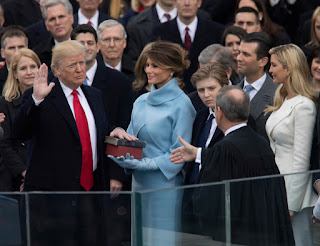Four issues with Donald Trump as US President

Here are my four issues concerning Donald Trump and why I feel that he was not appropriate to be President of the United States. 1. A life spent in pursuit of private wealth and influence, not in public service. Trump was raised in a wealthy family and is wealthy himself. His whole life has been spent in pursuit of private wealth and influence and not in 'public service', a commitment to create as much good for as many as possible. The 'centre of gravity' for Trump is private wealth and influence -private good. (This does not mean to say that just because someone is in public service that they are necessarily altruistic either. However, the structures and context of public service institutions are oriented toward public good and service.) 2. A member of an elite, wealthy class that is incapable of adequately representing and advocating for diverse interests. In keeping with his position within the elite, wealthy class, Trump has no understanding (nor, it appears, does
